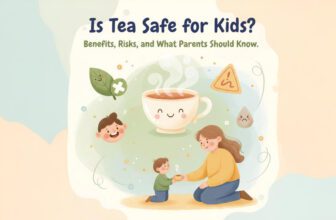
Love languages have been a hot topic for decades, and if you believe in them and they work for your relationship, they can honestly be a great resource for staying connected and on the same page as your partner. When you know your partner’s love language is physical touch, for example, you can use a hug or holding hands or just snuggling on the couch as a way to bridge any gaps you’re feeling or to make them feel loved and comforted.
But do love languages work with friendships?
The thing about love languages is that they’re a helpful tool in ensuring your partner feels all the love and appreciation you have for them by meeting them where they need you to. So, it makes sense that it would work for friends. Maybe your friend who feels left out when you don’t text back promptly enough, or the friend who feels down because you guys haven’t had enough quality time together, would benefit from you knowing their love language. But is that realistic?
“I do think knowing a friend’s or a partner’s preferred way of receiving support and comfort can be incredibly helpful,” says Arkadiy Volkov, RP, clinical director at Feel Your Way Therapy. “Whether we call it a ‘love language’ or simply ‘what makes them feel cared for,’ understanding what makes another person feel good can make it so much easier for us to be there for them. And it shows our care for them and our willingness to meet them where they are.”
But Volkov acknowledges that it’s also not great to make friendships or any relationship “too rule-bound or heavy with expectations.” By turning that connection into a “checklist,” Volkov says we risk “losing the spontaneity and natural generosity that make friendships so rewarding.”
As with all things, what often works best is a balance, he says. “We can be aware of our friends’ preferences, but also leave room for trial and error. Sometimes, offering care in the way we feel moved to can open up new moments of understanding. And when a relationship is solid and not overly fragile, both people can handle those small misses with grace. They can say, ‘That’s not quite what I needed, but I appreciate the effort,’ and in turn, we can adjust without feeling criticized.”
There are so many online discussions, TikToks, and reels about the value of friendship and what happens when one person feels like the other is less invested. And that kind of chatter always makes me feel super guilty: for being a bad texter, for not always initiating a night out, for not buying my friends more little gifts when I think of them. But it doesn’t make me a bad friend, especially not if I’m committed to a friendship and trying to meet my friend’s needs — just maybe not in the way they’d prefer.
Organically, all of us learn what those around us prefer. Whether it’s our kids, partners, or family members, we know that some people prefer getting confrontation over and done with immediately, and some prefer quiet time before a deep discussion. We can tell when we need to check in, like when one kid needs a little extra chat time at bed or your spouse wants you to watch a show on Netflix with them. We can feel it because we’re close to our people and love them, and we can adapt to what they need while still not overwhelming ourselves. It’s a fill-everyone’s-cups kind of situation.
“The healthiest friendships, in my experience, are those where both people can express their needs openly while also accepting that no one gets it right every time,” Volkov says. “There’s trust in the relationship’s resilience, so even imperfect attempts at support are seen as acts of care.”
These are the friends you can go weeks without seeing, and it’s like no time passed. The friends who would rather talk on the phone for an hour, but still feel your love and support in a 3-minute voice note sent while driving your kid to basketball. The friends who offer to pick up your kids and make you brownies and show up to clean your house when you’re overwhelmed because they love acts of service, and not because they expect anything. The friends who know you’re trying your best and love you for it.
Because friendship might just be a broad love language all on its own.
Disclaimer: This content was automatically imported from a third-party source via RSS feed. The original source is: https://www.scarymommy.com/lifestyle/should-you-know-your-friends-love-language-an-expert-explains. xn--babytilbehr-pgb.com does not claim ownership of this content. All rights remain with the original publisher.






